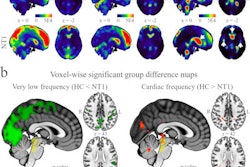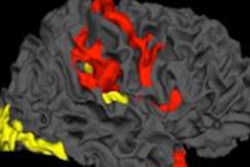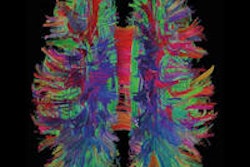
MR images of patients with schizophrenia have confirmed that antipsychotic drugs can lead to a decrease in brain volume, but the drugs do not appear to cause adverse cognitive issues.
The study from the University of Oulu in Finland and the University of Cambridge in the U.K. also found that the rate of brain loss was greater when the dose of medication was higher. The results were published online July 18 in PLOS One.
Other studies have suggested that while older antipsychotic medications may cause decreases in brain volume, newer antipsychotic medications may protect against the loss of brain volume. However, this research indicates that both classes of antipsychotic medication can cause similar declines in volume.
The researchers compared brain scans of 33 patients with schizophrenia and 71 control subjects over nine years, from age 34 to 43. The MRI scans showed that schizophrenic patients lost brain volume at a rate of 0.69% each year. The control subjects lost brain volume at a rate of 0.49% per year, a difference that was statistically significant (p = 0.003).
Lead author Juha Veijola, a professor in the department of psychiatry at the University of Oulu, said it is natural for all people to lose some brain tissue as they age, but schizophrenic individuals lose brain volume at a faster rate.
These types of studies could help develop guidelines for the best time to reduce the dosage of antipsychotic medication in the long-term treatment of people with schizophrenia, Veijola and colleagues noted. The loss of brain volume didn't appear to have any effect over the nine-year follow-up period, and they stressed that patients should not stop their medication on the basis of this research.
They recommended future studies to investigate whether there are any effects later in life from the loss of brain volume.



















